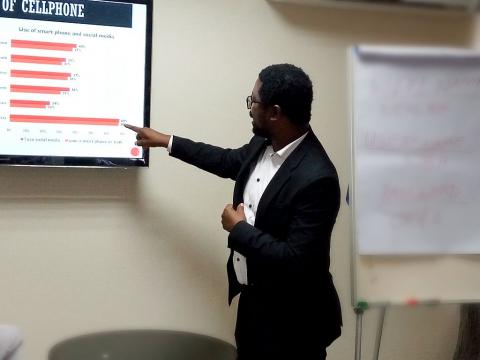By Alpha Abu
The Institute for Governance Reform (IGR) has analysed the 2022 budget which was presented to Parliament by Finance Minister Dennis Sandi. In a released statement, IGR said for “government to meet all or the greater part of government’s priorities in the Medium-Term National Development Plan (MTNDP), revenue mobilization (improving domestic revenue collection), addressing vulnerabilities and building resilience along with stringent public financial management practices will have to be a top priority”.
IGR drew attention to World Bank’s budgetary support that is expected to be in the region of Le. 783.0 billion and a projected Le.9.94 trillion in revenue and grants. From this, Le. 7.64 trillion will be for domestic revenue or 15.1 percent of GDP, and grants of Le.2.3 trillion.
“Principal loan repayments will amount to Le740 billion in 2022 which will further be a burden on the economy and the increment on the domestic debt to GDP ratio. The Government wage bill for 2022 has increased from Le3.75 trillion in 2021 to Le3.90 trillion (7.7 percent of GDP). This increase in the nominal wage bill reflects Government’s commitment to the improvement of the education, health and security sectors”, the IGR analytical report states. IGR says the government is adopting debt sustainability measures such as creating a ceiling for borrowing but believes “we need to reduce the volume of public debt significantly so as to reduce the pressure on debt financing in the economy”.
IGR says despite government’s premium on Human Capital Development and recruitment of more teachers, there remain other issues that the budget did not capture in the educational sector such as teacher recruitment maintaining them in remote areas, as well as strengthening community oversight of education.
IGR also looked at the budgetary allocation for the various government sectors and took cognisance of the support directed to vulnerable persons in certain institutions. IGR said: “The Ministry of Social Welfare is being allocated Le27.1 billion to support social protection programmes, including Diets to Approved Schools and Remand Homes. Additional institutions and programme support include the National Commission for Persons with Disabilities, grants to welfare institutions, livelihood support for people living with disabilities, and the rehabilitation of Remand Homes. In 2021 the budgetary allocation for this sector was 3.43 billion far below the 2022 allocation. This shows an increase of 690 percent from 2021 to 2022”.
IGR gave a favourable view on the formation of the Youth Empowerment Fund but advised for “proper monitoring of the inflow and outflow of funds”. It cited projects such as Youth in Agro-Processing, Youth in Car Wash and Youth in Fisheries that IGR believes will continue to help engage the youths and steer them towards meaningful activities. IGR in its final analysis warned that a surge in Covid-19 cases could pose a significant threat to the budget implementation and suggested more vaccination could improve the situation.
The rise in the global prices of fuel and other goods and services was also taken into consideration as a threat to budget implementation. IGR believes Sierra Leone as an import driven economy, could be affected by any negative shock in international markets that can easily disrupt the implementation plans of the 2022 budget.
It was “recommended that government starts to introduce import substitution strategies to reduce over-reliance on international markets. Also, a delay in quarterly disbursements could also serve as a threat in the implementation of the 2022 budget”.
Timeliness in the disbursements of funds was also recommended by IGR, and it pointed out that “delay or default of Development partners’ budgetary support can also greatly impede budget implementation”.
Copyright © Politico Online 08/12/21








